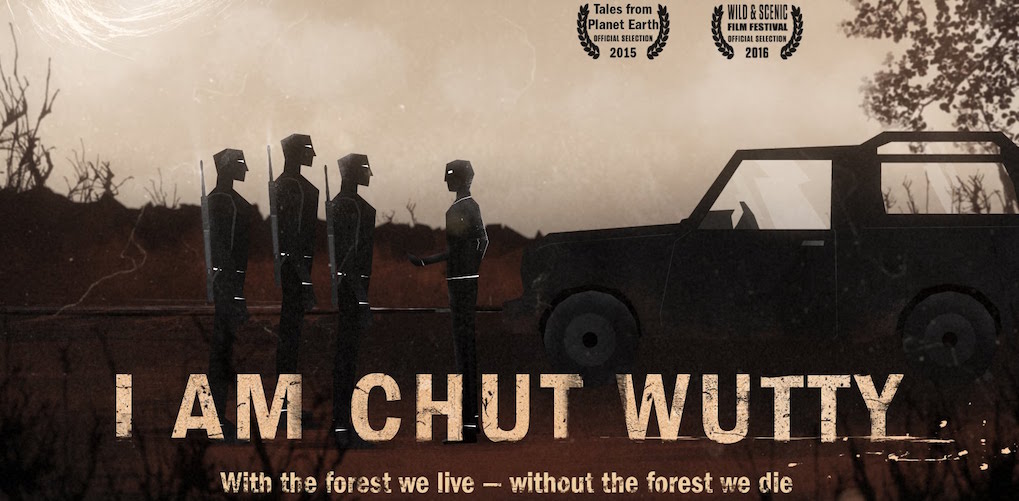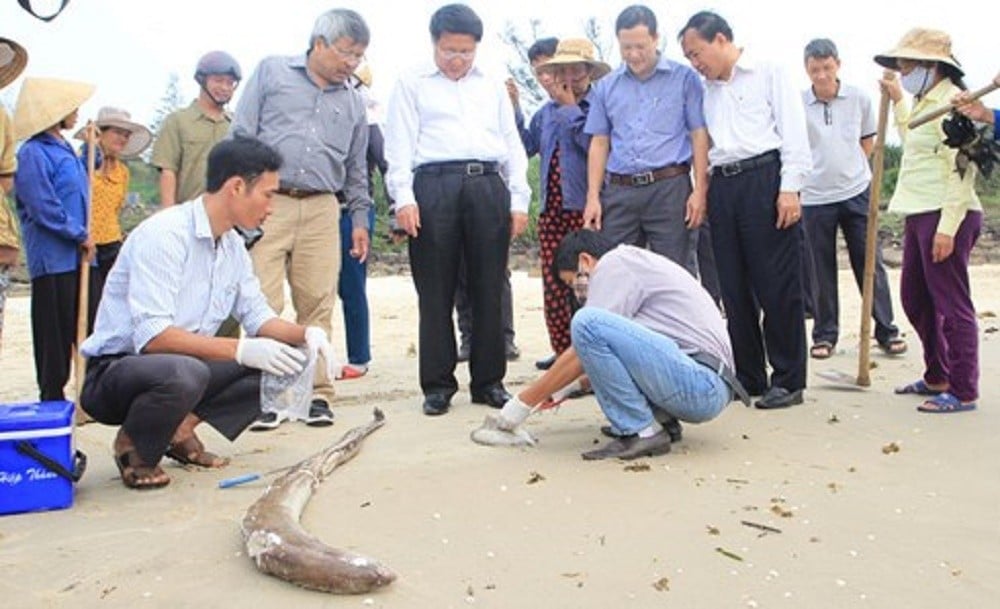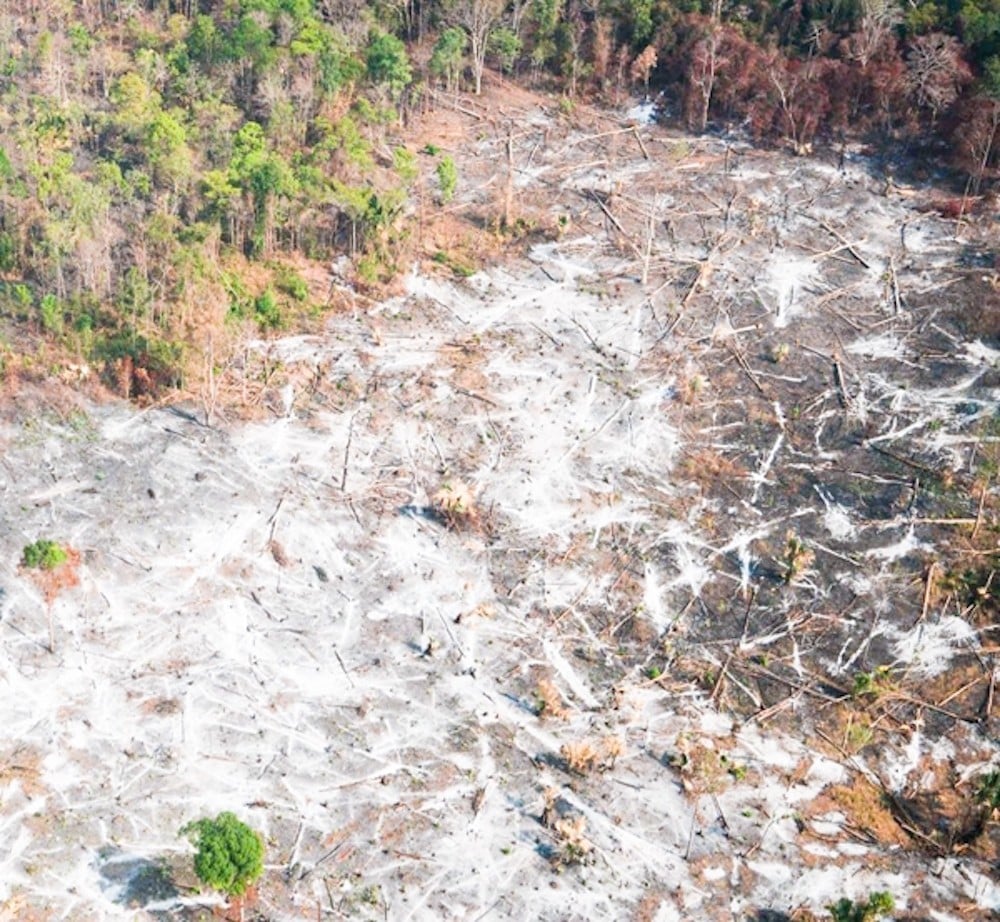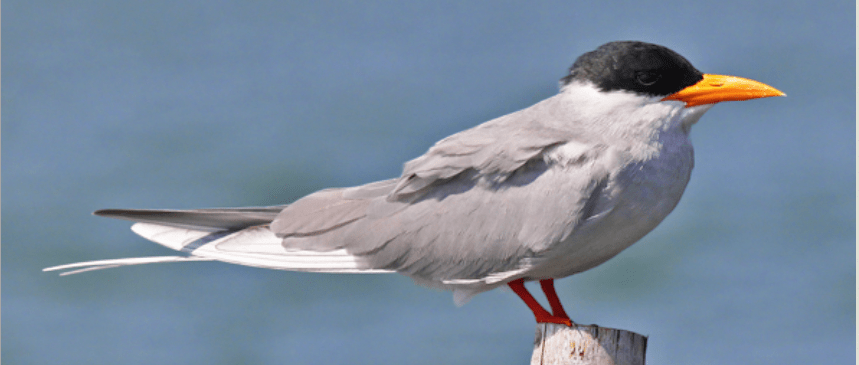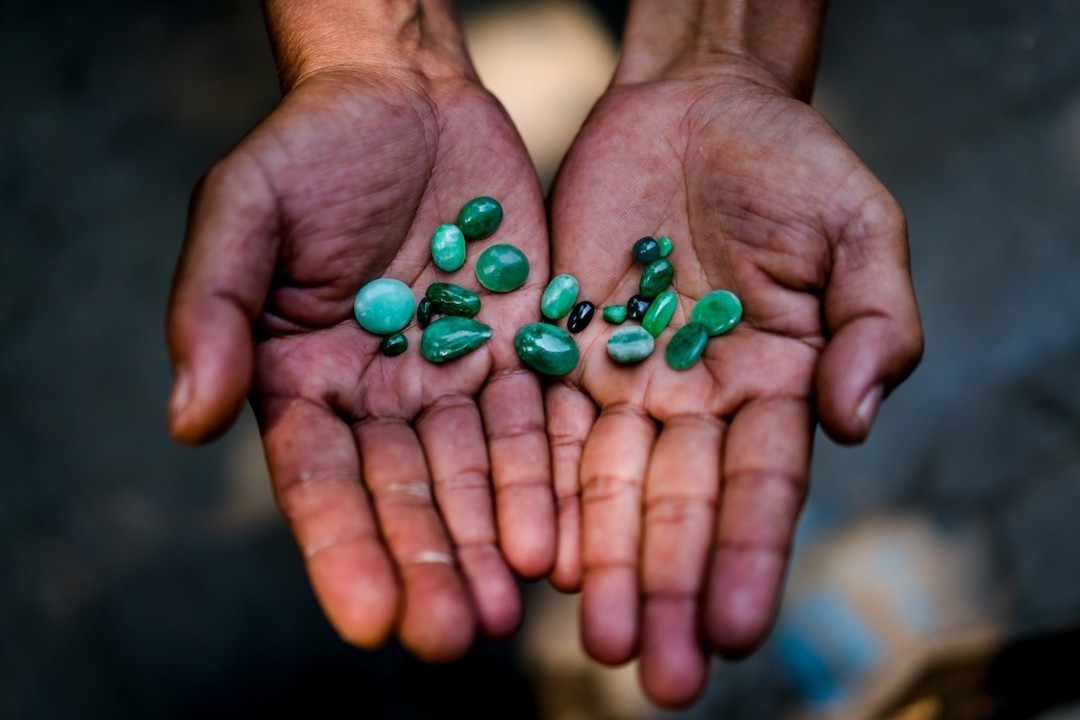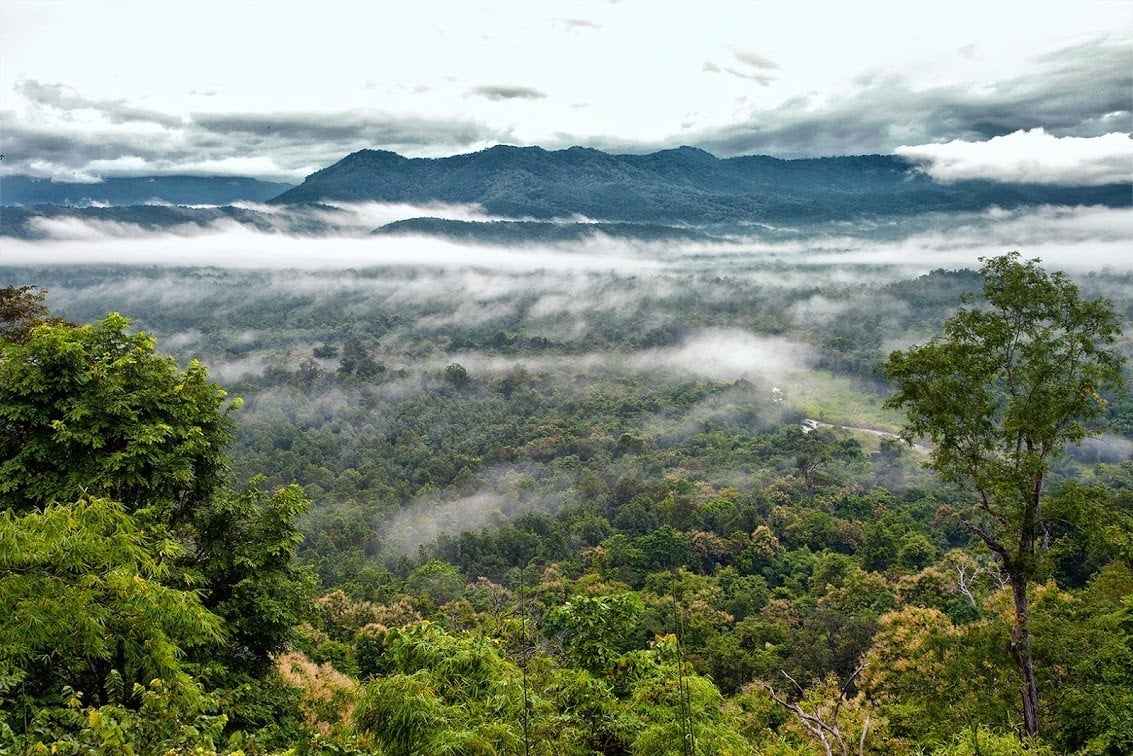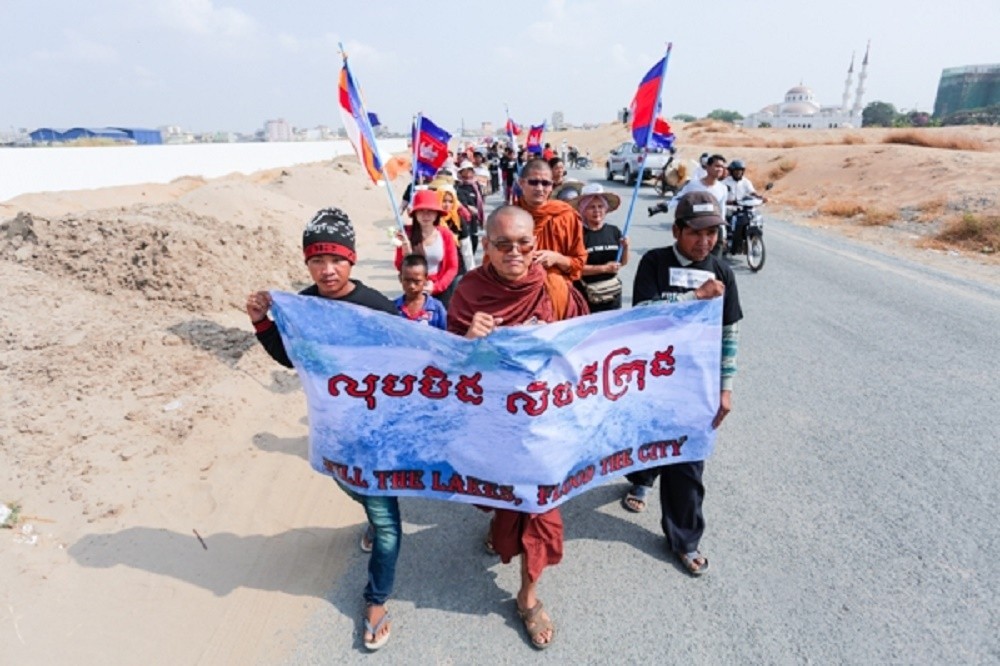The Cambodian government has stopped the public screening of a documentary about the life and struggle of Chut Wutty, an environmentalist who was killed in 2012 while exposing the activities of an illegal logging plantation.
Tag: Environment
Mass fish deaths in central Vietnam point finger at industrial wastewater discharge
A fisherman in the central province of Ha Tinh has reported to local authorities that he saw a sewage pipe a Taiwanese steel manufacturer may have installed to discharge wastewater directly into the sea in an area where a huge number of fish have died recently.
Nguyen Xuan Thanh, 36, of Ky Anh town told officers at a border guard station that he found the pipe by chance while diving to catch fish on April 4.
Prey Lang Protection Moves Forward
The Environment Minister said he would draw up a proposal to protect the remainder of Prey Lang’s roughly 300,000 hectares after flying over the area with the US Ambassador, NGOs and development partners yesterday.
Minister Say Sam Al said the announcement was a turning point for the government, calling on all development partners to cooperate with each other in order to reach an agreement.
“The size of the last forest was more than 300,000 hectares. Now it’s a good sign for us to make an agreement to make Prey Lang a protected area at once. It’s not an easy issue, it’s a difficult issue,” he said.
The minister added that he has been studying Prey Lang with local authorities and will organize a workshop in the next few days to discuss the proposal before sending a sub-decree to the Council of Ministers for approval. “What we did with the ambassador was preparing Prey Lang as a protected area.
Cambodian Forestry Campaigner Awarded 2016 Goldman Environmental Prize
Activist Ouch Leng has received international recognition for his work documenting illegal logging and land abuses in Cambodia over the past two decades.
The Goldman Environmental Foundation on Monday announced that Ouch Leng was among six grassroots campaigners from around the world to be awarded the 2016 Goldman Environmental Prize, which recognizes their efforts to protect the environment and means more financial support for their causes.
“It’s an honor for Cambodia and its people,” Ouch Leng told VOA Khmer after hearing about his award.
He dedicated the award to his countrymen who are fighting to preserve Cambodia’s remaining forests in the face of rampant illegal logging and damaging government policies.
Dolphin calves born in the Mekong
The Mekong River now has so many dams that one of the worlds mightiest rivers could almost run dry. In the dry season, river levels do in fact become dangerous for the rare river dolphins, Orcaella brevirostris Illegal fishermen and stranding opportunities increase, but the good news this March, as river levels rise again, is that no animals were lost and 3 calves were born near the delta. 688 river guards protect the dolphins and the river in Cambodia and the Lao PDR, and that investment surely must be helping! The WWF report the story here.
Many plants and animals rely on the might flow of the Mekong, with 1100 fish species alone, thousands of insects, mammals, amphibians, birds and reptiles well-known to researchers. The dolphins feed on fish, cephalopods and crustacea, facing intense competition from humpback and bottlenose dolphins when at the coast. Perhaps the 90 or so dolphins in Lao PDR and Cambodia can act as suitable emblems of the extinction possibilities threatening the rainforest and the riverine species. This dolphin is classed as Vulnerable, according to the IUCN Red Book classification, like many others of its order and so many others in the rapidly disappearing habitats around SE Asia.
China’s Sudden Dam Water Releases Killing Wildlife in Lower Mekong River Basin
It’s not just humans but also animals downstream who are affected every time water is released from Chinese dams into the Mekong River.
“The survival rate of baby birds has dropped to less than 60% over the past three years, as their nests lie on the riverfront and the water level of the Mekong is so unpredictable,” lamented the administrator of a Facebook page devoted to bird lovers.
Community rights clause not fooling anyone
The right of citizens and communities to protect the environment against harmful development projects is now back in the draft constitution, thanks to fierce pressure by civil society nationwide. So people can relax now, right? Not a chance.
Face it. The military regime is in it for the long haul. Their diktats are the ultimate rules of the land. The community rights clause in the draft will be of no help because it has also been heavily diluted, turning active citizens and communities into state vassals.
Since the beginning of this year, the National Council for Peace and Order (NCPO) has issued a series of orders under the special powers of Section 44 in the interim charter to eliminate legal obstruction and fast-track mega projects. First it was an order to bypass land-zoning laws to speed up the government’s project to create special economic zones in 10 border provinces, which also faces fierce opposition from locals. That was in January.
In Burma’s wildest corner, jade, drugs and rebels will test the new government
The jade tycoon of Burma lives behind stone walls and a sophisticated security system. A visitor must be buzzed through a gate into the garden, pass a hunk of jade as big as a compact refrigerator, enter through a sliding screen and glide by the preserved tusks of the family elephant before sitting down with the man himself.
Yup Zau Hkawng is a well-known figure in Burma’s Kachin state, a broker in the peace process between armed rebels and the military and one of the few ethnic Kachin to own a jade mining business.
Burma’s northernmost state is home to 1.2 million people and some of the country’s most intractable problems — including a rapacious jade mining culture, opium cultivation, environmental devastation, controversial development deals with China, and an armed insurgency. Kachin may pose one of the stiffest challenges to the new democratically elected civilian government, led by Aung San Suu Kyi, that has taken over a country that suffered decades of military rule.
Concern over big power projects on exemption list
POWER-PLANT projects that could generate up to 30,778 megawatts, proposed in the Power Development Plan 2015, have shown up in the city-planning exemption list announced by the National Energy Policy Council, raising concern among environmental activists over unregulated development.
Thursday’s announcement also includes alternative power projects under the Alternative Energy Development Plan 2015 and LNG (liquefied natural gas) station and receiving-terminal projects under the Gas Plan 2015.
The controversial Mae Wong Dam in Nakhon Sawan is also on the list appended to the announcement.
Surachai Trongngam, secretary-general of the Environmental Litigation and Advocacy for the Wants Foundation, said the announcement was clarification of a previous National Council for Peace and Order (NCPO) order, 4/2559, and gave more specific information on which projects were being included in the city-law exemption list.
Land Conflict Victims Call for a Stop to Lake Filling
Pav Suy More than 300 protesters from about 40 communities affected by land disputes throughout the country launched the Free the Lakes campaign yesterday, marching through the capital to the National Assembly accompanied by monks before submitting a petition to the governing body. The protesters gathered on a large swathe of sand-filled area that was […]


